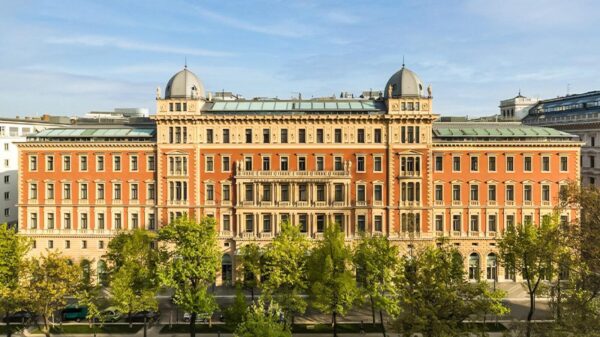New York City’s theater district, a cultural beacon nestled in Midtown, flourishes along a vibrant stretch of Broadway between 41st and 51st Streets. This lively area is interwoven with the iconic Times Square, creating a dynamic atmosphere that resonates with both locals and tourists. Upon exiting the bustling subway station—serving a multitude of lines including the 1, 2, 3, 7, N, Q, R, W, and S—you are immediately enveloped in a sensory explosion of radiant billboards, honking traffic, and the unmistakable energy that defines New York.
The Allure of Broadway
The theater district boasts an impressive collection of 41 Broadway theaters, each typically accommodating around 500 guests. This compact yet influential concentration offers an unparalleled opportunity for theater enthusiasts to explore different performances within a short walking distance. From timeless classics to groundbreaking new productions, Broadway serves as both a launchpad for emerging talent and a home to legendary performers.
Experiencing the Unique Atmosphere
While the frenetic energy of the streets offers an exhilarating prelude, stepping inside one of these historic venues transports you to a different realm. The moment you walk through the theater doors, the ambiance shifts dramatically; the chatter of the crowd fades into hushed anticipation, with every seat filled in eager expectation of the show to come. This ambiance not only enriches the viewing experience but also reinforces the communal aspect of theater, where audience reactions can reverberate through the performance.
The Impact of Theater on Culture
The significance of theater in NYC extends beyond entertainment; it serves as a mirror reflecting societal values, struggles, and ambitions. Productions often tackle vital issues such as diversity, equality, and resilience, making it a platform for conversation and introspection. The infusion of different cultural narratives fosters a richer understanding of our shared human experiences, thereby solidifying theater’s role as an essential instrument for cultural dialogue.
Accessibility and Community Engagement
In recent years, efforts have increased to make Broadway more accessible to a wider audience, including initiatives like discounted ticket programs and special performances for those with disabilities. These steps not only broaden the audience base but also ensure that the magic of live theater is available to all, reinforcing community ties through shared experiences and collective enjoyment.
Conclusion
The theater district in NYC is not simply a place for live performances; it is a pulsating hub of culture, creativity, and social reflection. With its rich tapestry of stories and characters, the vibrant atmosphere of Broadway transcends mere entertainment, offering a profound connection to the world around us. Whether you are a seasoned theater-goer or a first-time visitor, the experience is sure to leave an indelible mark, inviting you to return time and again.





























